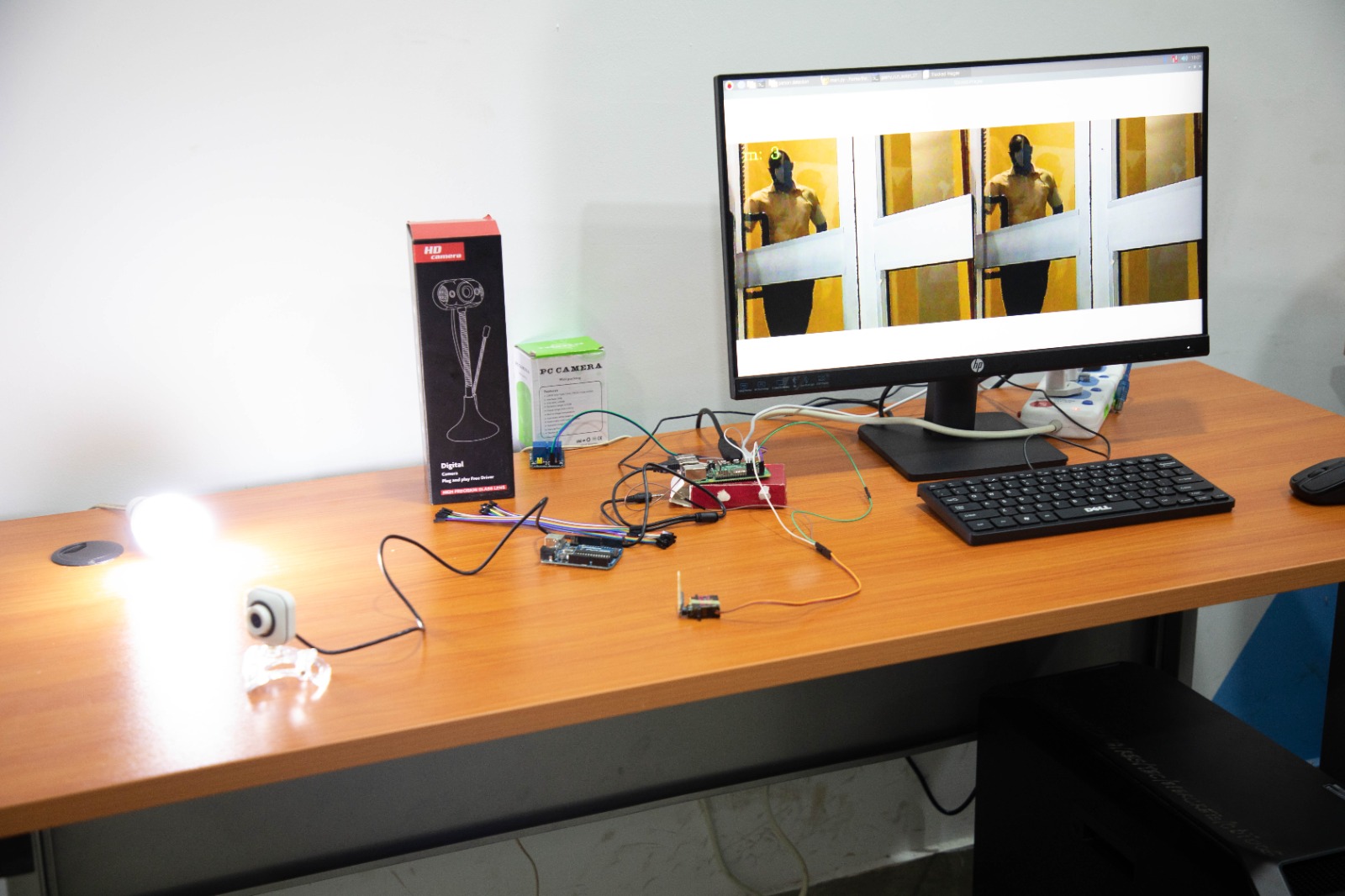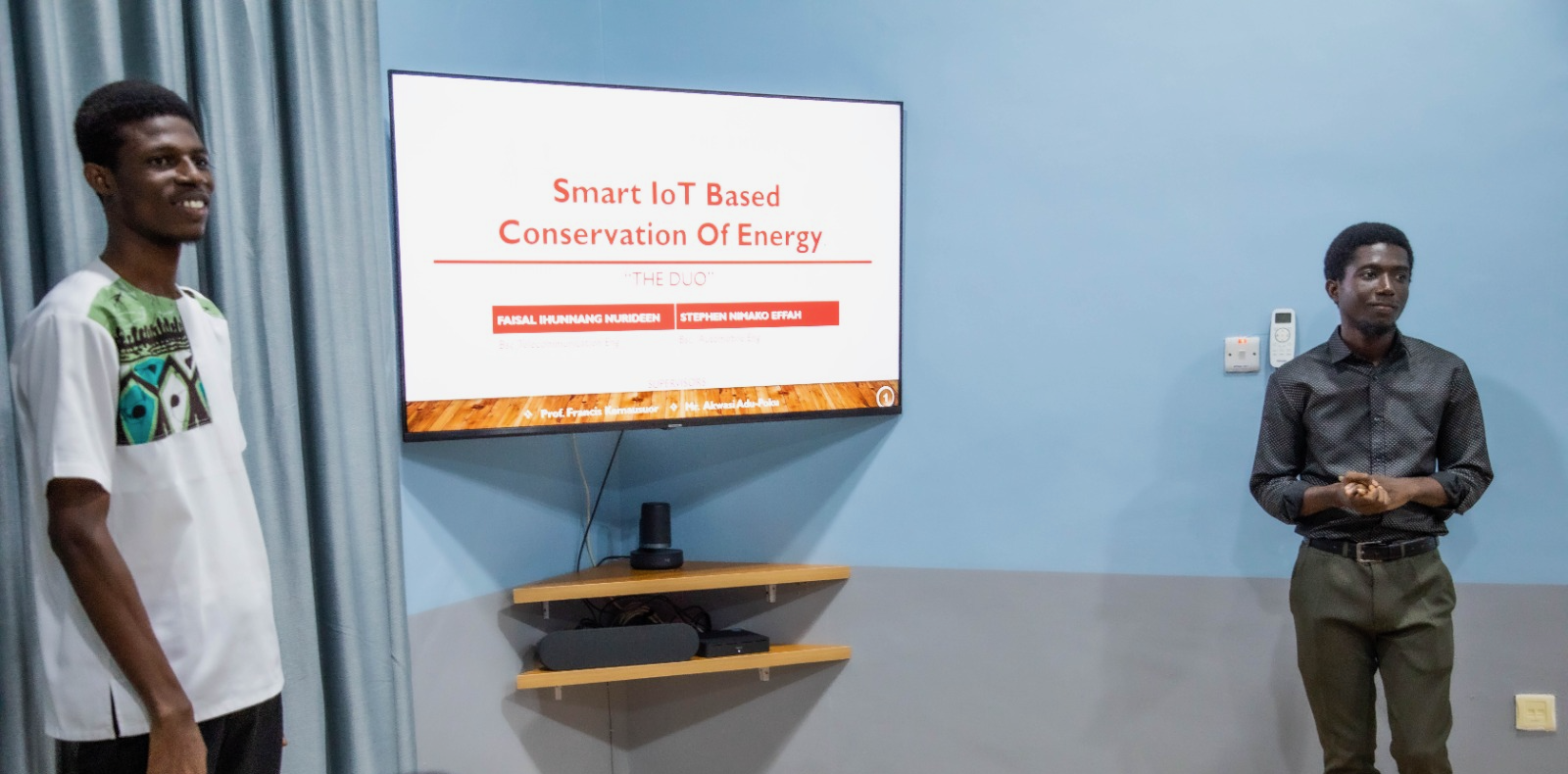KEEP NEWS
A Smart IoT-Based Energy Conservation Device: the “DUO”.
Published: 10 Nov 2023

Faisal Ihunnang Nurideen and Stephen Nimako Effah, 3rd-year Telecommunication Engineering and Automobile Engineering students at the KNUST College of Engineering, have innovated a smart IoT-based energy conservation device named the “DUO”.
This device efficiently conserves energy by automatically powering off electrical gadgets like light bulbs, fans, air conditioners, and other electronics when no human presence is detected in a room for a specified duration. The fully automated device receives functionality updates remotely, making it a dynamic and responsive system. The system's efficiency is deeply rooted in the advanced AI algorithm for human detection.
The system, encompassing a webcam, sensors, a motor, and a Raspberry Pi4, is designed for diverse environments, including classrooms, homes, and offices.
The DUO device saves energy by preventing electronic devices from being left on for extended periods. It showcases versatility in applications, ranging from head counts to smart home controls, security enhancement, safety, and anomaly detection. Its seamless integration into various settings underscores its potential as a multifaceted tool for convenience, energy efficiency, and safety.

The students were supervised by Prof. Francis Kemausuor, Dean of the Faculty of Mechanical and Chemical Engineering and the Renewable Energy Thematic Lead of the KNUST Engineering Education Project, and Mr Akwasi Adu-Poku, PhD Bioengineering candidate. The Brew Hammond Energy Centre and the KNUST Engineering Education Project funded the materials for the “DUO.”
